media article
Victim Support Europe has a 30-year history of advancing victims’ rights which inspires hope. Their new campaign aims to turn that feeling into action. As we are approaching 22 February, the European Day for Victims of Crime, #onevoiceonecause calls for everyone to continue to strive to improve the situation of victims.
Brussels, 17 February 2020
A new social media campaign launched today by Victim Support Europe calls on the Member States, EU institutions, civil society and victims’ rights activists to continue to strive to improve the situation of victims.
The #onevoiceonecause campaign, which kicked off with the Joint NGO Statement, is backed by victims-survivors, leading EU nonprofits, victims’ rights advocates and activists across the EU who are sharing their voices and stories as well as the challenges and achievements in the implementation of the major EU victims’ rights law – The EU Victims’ Rights Directive. The action week, 17 February – 22 February, is a momentum of emotion, action and solidarity.
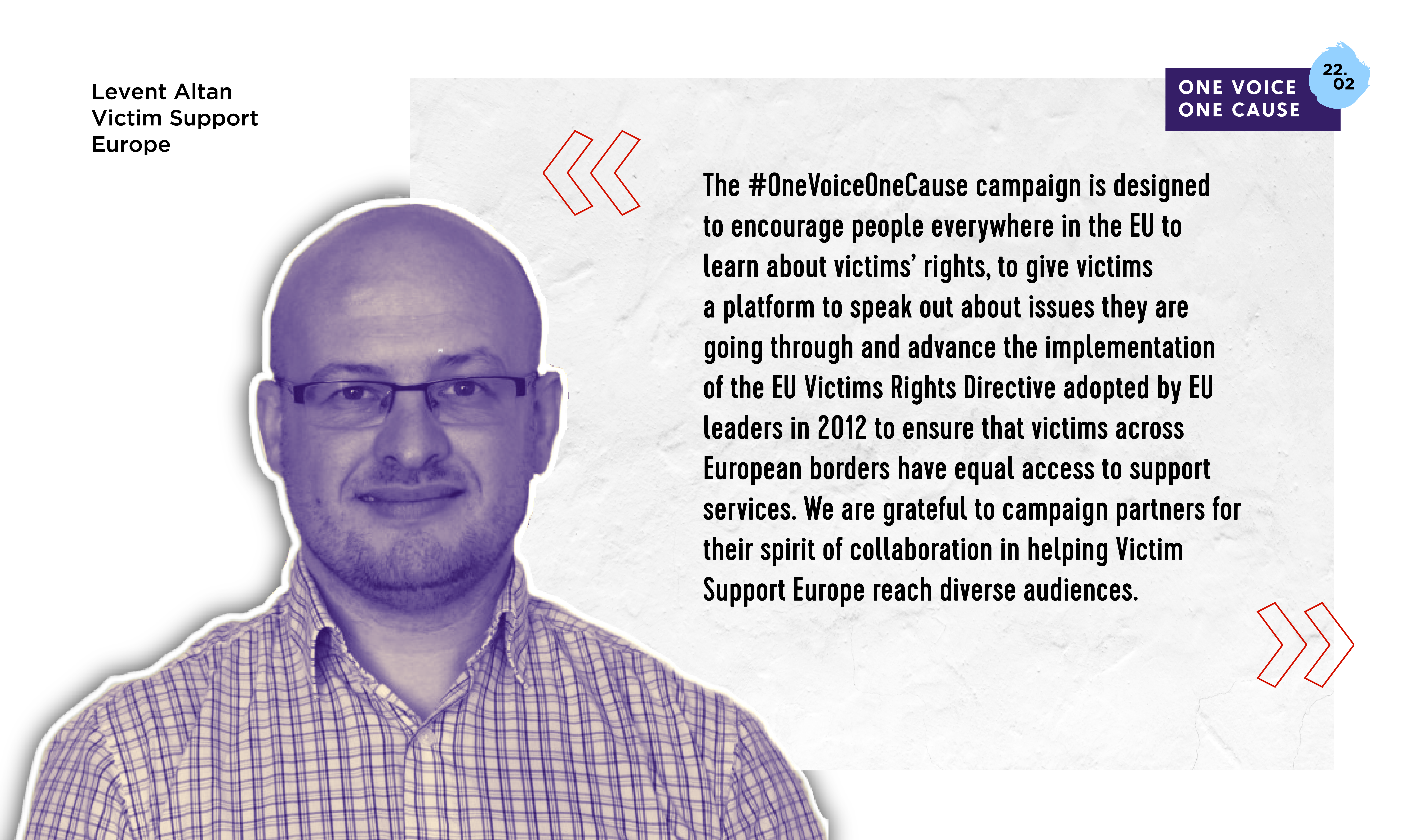 “The campaign is designed to encourage people everywhere in the EU to learn about victims’ rights, to give victims a platform to speak out about issues they are going through and advance the implementation of the EU Victims Rights Directive adopted by EU leaders in 2012 to ensure that victims across European borders have equal access to support services. We are grateful to campaign partners for their spirit of collaboration in helping Victim Support Europe reach diverse audiences”, says Levent Altan, Executive Director of Victim Support Europe.
“The campaign is designed to encourage people everywhere in the EU to learn about victims’ rights, to give victims a platform to speak out about issues they are going through and advance the implementation of the EU Victims Rights Directive adopted by EU leaders in 2012 to ensure that victims across European borders have equal access to support services. We are grateful to campaign partners for their spirit of collaboration in helping Victim Support Europe reach diverse audiences”, says Levent Altan, Executive Director of Victim Support Europe.
In many countries victim support services are able to respond immediately to help victims. Such a timely response is essential. On this occasion, it is important to thank all those who stand ready to help victims – the frontline support workers – for their extraordinary efforts. Your dedication gives victims an essential line to help them recover and to overcome the hardships they face.
The campaign features a powerful video message by the survivor-ambassador of domestic violence Melanie Maria in which she communicates the idea that no one is alone, that there are best days yet to come and that the secret is in proper victim support.
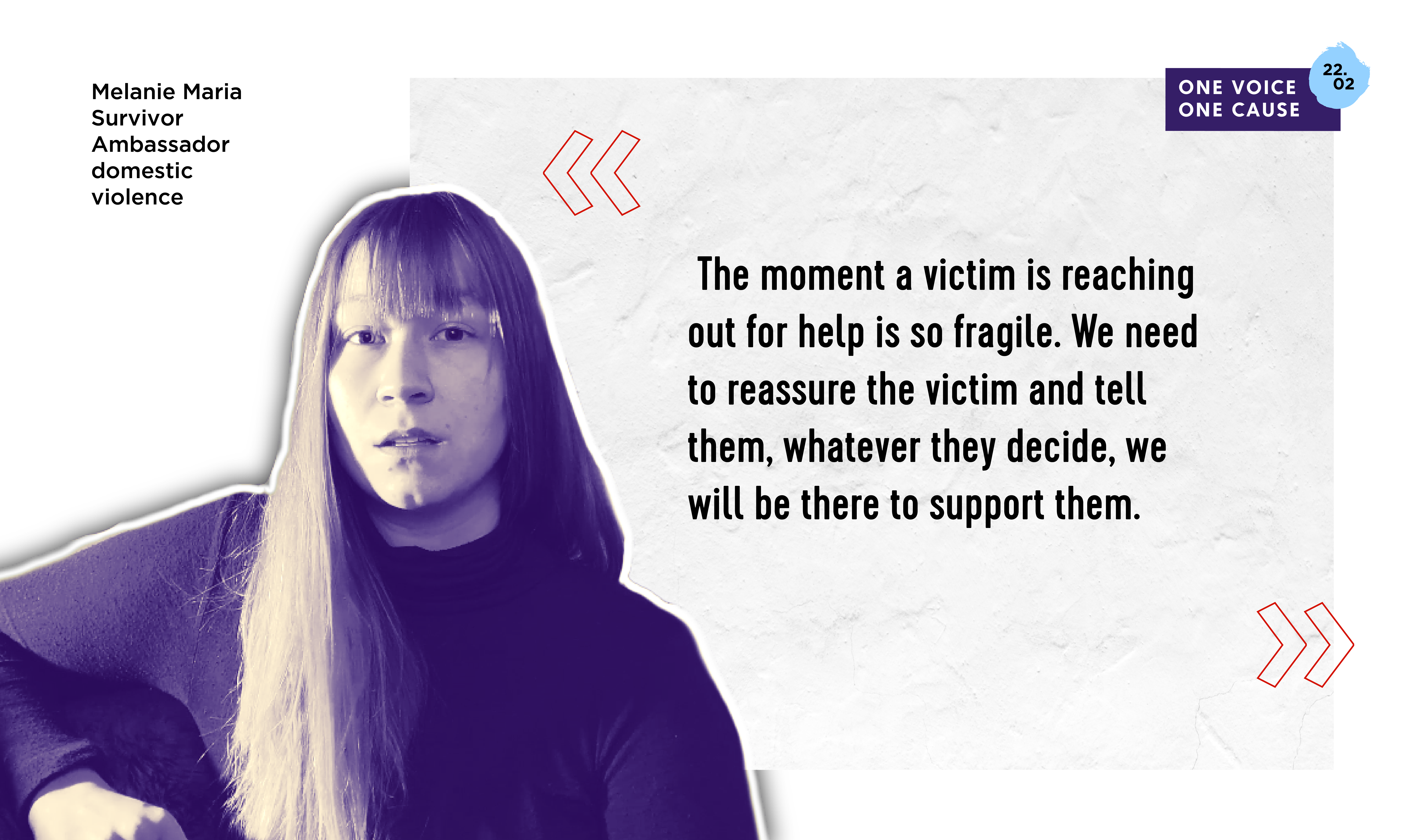
“It is incredibly important to us that what we are saying in this campaign is both rooted in this moment but also in our organisation’s purpose”, says Levent Altan. “We want victims and our partners to feel inspired by our capacity to act together to make change”.
This idea is central to the campaign. The intention is to make people feel that although the issues that face us can seem overwhelming, victim rights activists are offering clarity and alternatives which can help to make the EU laws work in practice.
“Support is power”, “support is the secret” feels relevant and urgent in these disorientating times. The campaign is connected to the Victim Support Europe’s purpose – we’re here for the victims – we are not just an umbrella organisation, we are people who care and do our best to provide victims and partners with a sense of hope and optimism against the current backdrop”, says Marina Kazakova, VSE’s PR Officer.
The short videos’ provided by the VOCIARE project partners central message is: ‘It is time to act. 7 years passed after the EU Directive had been established. Still, not every State has a well established, well-funded, national victim support service. Many victims don’t know about the existence of free victim support in their country. Nor is every victim entitled to access victim support services even when they know about it. Unfortunately, there is still a large gap between victims’ rights on paper and their rights in practice. The VOCIARE project partners from around the EU voice the good practices and the most pressing victims’ rights issues in their national contexts and call on the next steps to improve the situation.’

From what the Maltese national report indicates, for example, once a victim files a report they given a standard leaflet which lists their basic rights and are referred to the main police website which explains the law, with no further information given. In Croatia, the provision of information is very much depending on whether the victim is officially reporting the crime. In Hungary, there is hardly any information available online, while leaflets that in theory exist are often not available at police stations to be handed out. Similarly, in Lithuania, research raises serious concerns about the availability and the quality of information given to victims. Even in Portugal, as the country with the longest history of victim support, from amongst the States represented in project partnership, and where plenty has been done towards ensuring information to victims, there are still significant gaps in the provision of information, in particular to vulnerable victims, such as victims with disabilities, for example.
“An essential ingredient of solidarity work is direct contact with people involved in the struggles you are supporting. Our campaign features victims-survivors, frontline support workers and victims’ rights experts who are sharing their voices on social media channels, building a momentum of action. The campaign rallies support behind the idea that “we don’t accomplish anything in this world alone”, especially in helping crime victims, and highlights how we can all empower victims to recover”, says Marina Kazakova.
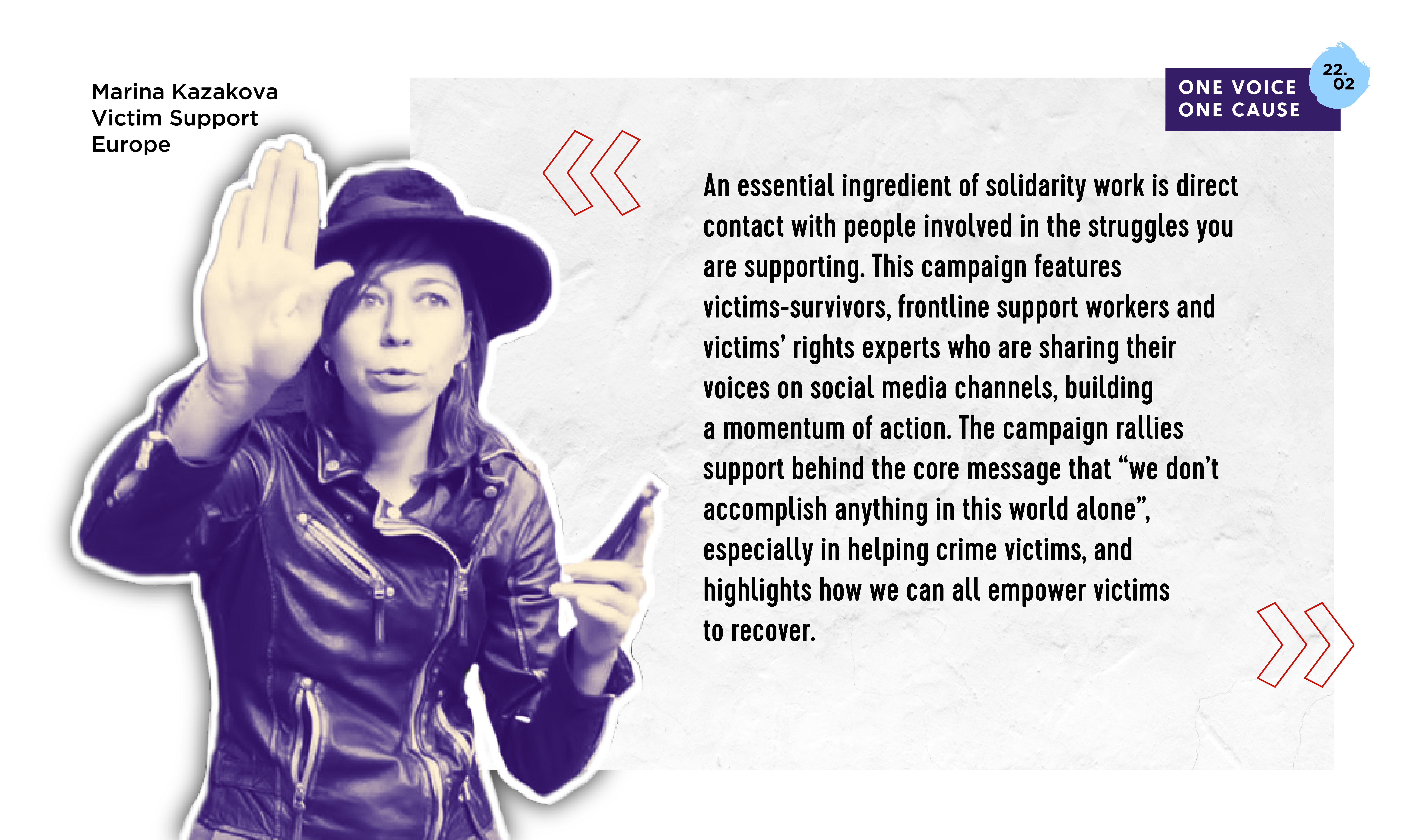
The campaign is running across major social media platforms: Twitter, Facebook, LinkedIn, Instagram. The Action Week invites netizens to create and share content as part of the bespoke hashtag #onevoiceonecause.
“It is so inspiring to find people from across the EU engaged, enthused and calling for commitments and actions to support crime victims,” says Yasmine, Brussels-based victim of hate crime.
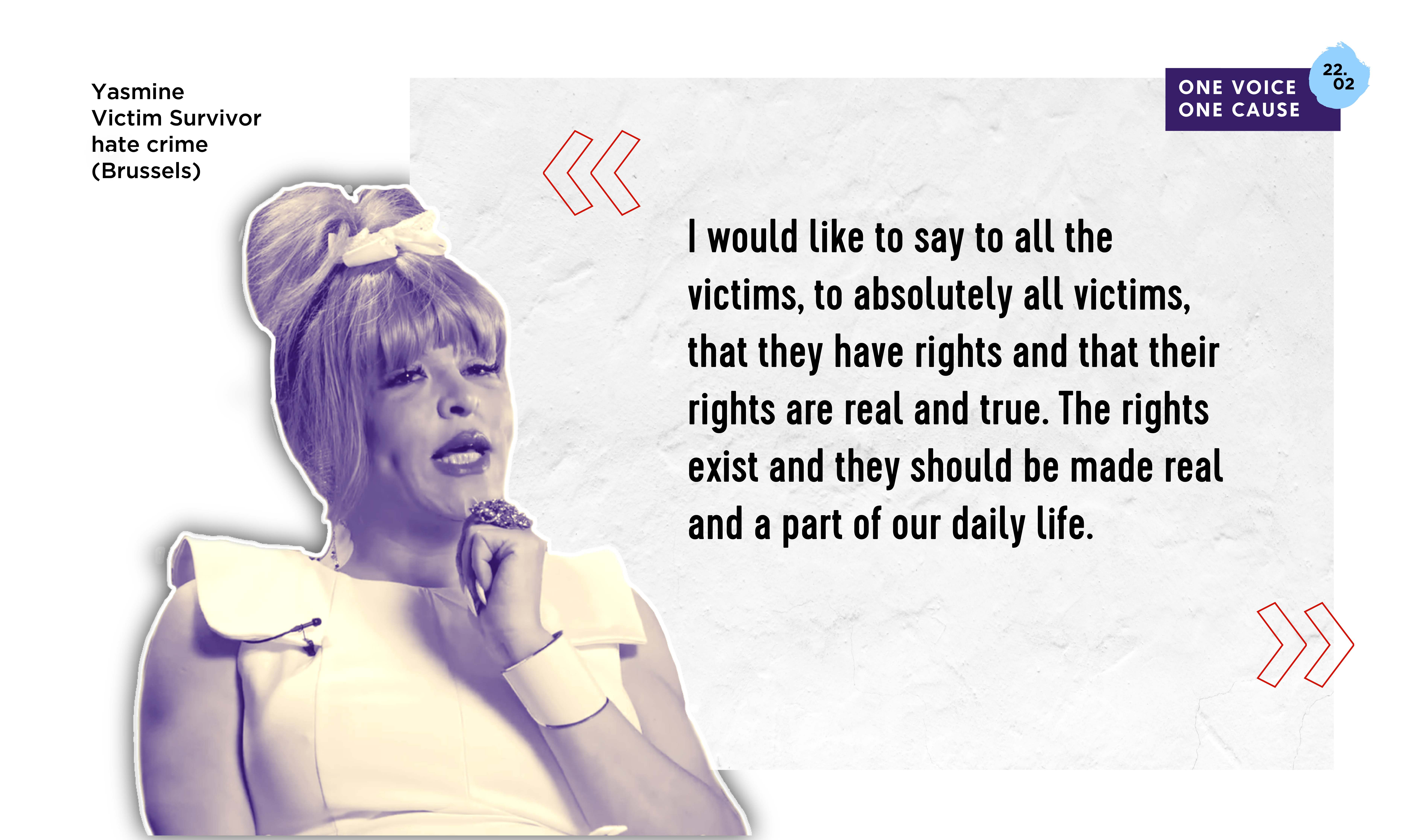
Making change is not easy and is rarely free. Change is complex. From their 30-year experience as an NGO, VSE’s team has got good practices in order to offer an explanation that says ‘this is how change happens’. Their work shows that civil society is driving extraordinarily social change – from changes in attitudes and cultural norms (developing victim-oriented criminal justice systems), to important changes in legislation (EU Victim’’ Rights Directive), to genuine transformations in local contexts and individual lives.
Much of that change originates in working symbiotically with partners from other sectors. The ‘One Voice One Cause’ is one of many examples in this. The action week is supported by the actors from civil society, private sector, the media and the arts.
For instance, one of the campaign’s business sector partners is ‘Transcendent Media Capital’, an award-winning media production and investment structuring company, specializing in social and environmental impact investment focusing on whole systems change. TMC combines media, technology, and proactive legal regulatory reform, developing programmes of investment which tackle global issues. TMC produces media content, both fiction and non-fiction across formats as part of its media portfolio.

Peta Milan, Founder Transcendent Media Capital, Co-Founder Jade Eli Technologies and Child Abuse Survivor, believes that “when supporting victims we must all be prepared to focus on their needs. Be powerfully present, listen deeply and take action. This is the only way to support them to alchemise their trauma into empowerment”.
An art sector partner of the campaign is ‘Poesía de Emergencia’, an extraordinary initiative born in Barcelona in 2018. A 24/7 helpline telephone number functions for those who are in crisis and are willing to absorb the magic of poetry, to listen to a real human’s voice reciting a verse. “There are moments in life when a well-recited verse can save us from almost everything, can help us to calm down and get going”, says Edu Bernal, one of the founders of the project.
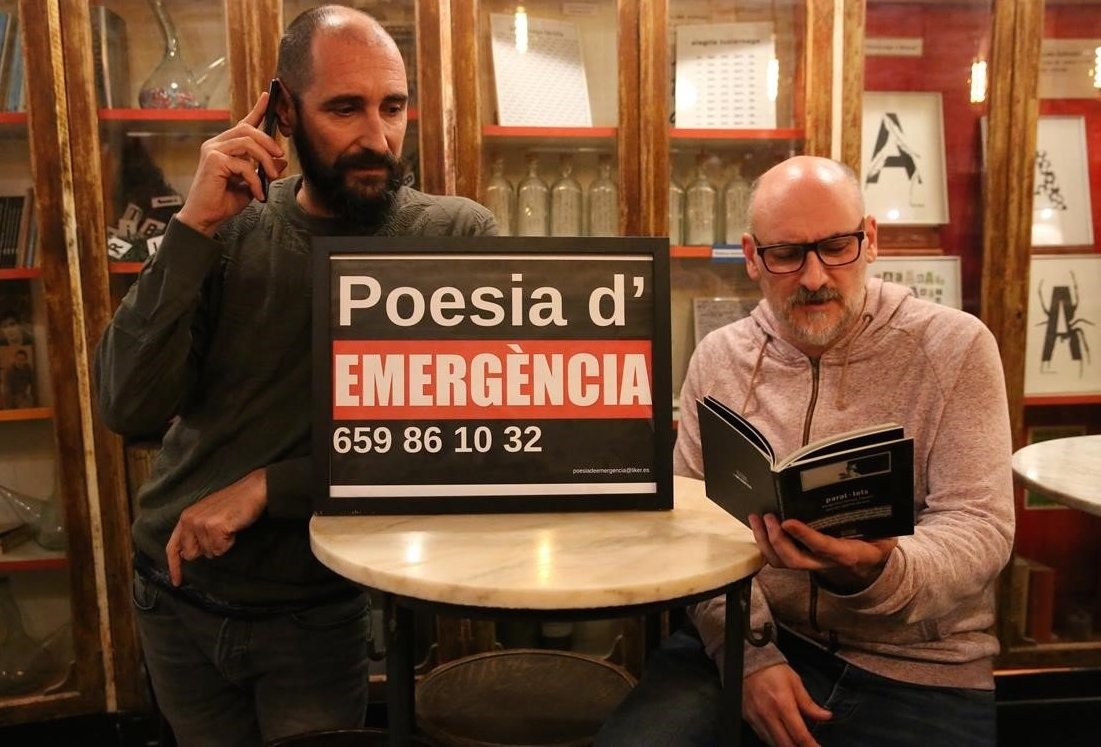
The campaign’s Joint Statement was signed by the leading EU NGOs who work for the benefit of victims of crime: Ilga Europe, Inclusion Europe, Amber Alert, Age Platform, PICUM, CEP, EFRJ, FairTrials, Cavaria, CEJI, ENAR, La Strada International and the International Network for Hate Studies.
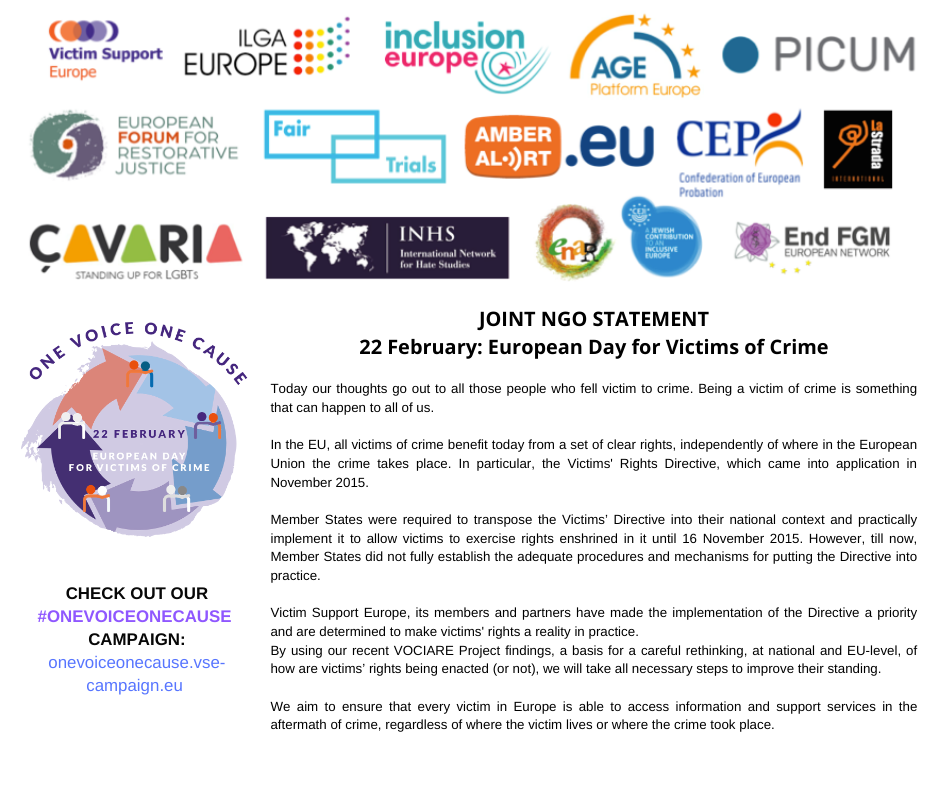
“Victim Support Europe and its members work daily to protect and assist crime victims. But they simply cannot do this alone. They need everyone to play their part, to take action, to speak out, to challenge perpetrator’s and make victims’ voices heard”, says Melanie Maria, victim-survivor of domestic violence.
The hopes for the campaign
The campaign aims at deepening affinity with national governments, civil society and victims. It is strongly connected to VSE’s year-round efforts which build towards VSE’s ambition to fully implement the EU Victims Rights Directive in all Member States.
The VSE’s team had quite a progress so far. They see surges in support community – pro-activeness, persistence, inspiration – the campaign captures this. People are fed up with despair and feeling helpless. Victim Support Europe is here to offer fresh ideas, recommendations and hope and it seems like their partners and followers are ready to be part of that.
For more information and campaign content please go to the campaign website: https://onevoiceonecause.vse-campaign.eu/
DOWNLOAD the article in PDF-Format.


